ResMed: Medical Devices For Sleep Apnea By Leading Company
ResMed (RMD) is a global leader in sleep apnea and respiratory care solutions. Its cloud-connected devices and digital health software improve patient outcomes and drive strong recurring revenue. A dominant market position, strategic acquisitions, and growing demand for home healthcare.
Content:
🧐 Company Overview
🌐 Market Overview
🏰 Economic Moat
🚀 Business Strategy
🏛️ Capital Allocation
✅ Advantages
❌ Disadvantages
🥇 Competitors
⏮️ Past
📶 Future
💲Current Valuation
🏷️ Fair Price
☑️ Checklist
✍️ Due Diligence
💡 Investment Thesis
🧐 Company Overview
Market Cap: ~$34.22 Bil
Sector: Healthcare
Industry: Medical Instruments & Supplies
Type: Mid Growth
Total Number of Employees: ~8,000
Website: www.resmed.com
Next earning report: April 25, 2025 (estimated)
ResMed is a leading global company that specializes in medical devices for sleep apnea and other respiratory conditions. It designs, manufactures, and distributes flow generators, masks, and accessories used in sleep-disordered breathing treatments. ResMed's primary revenue segments include Sleep and Respiratory Care, which contributed 87.5% of total revenue in fiscal 2024, and Software-as-a-Service (SaaS), which contributed 12.5%.
📝 Analyst Note:
What is sleep apnea?
Sleep apnea is a disorder in which the muscles in the throat relax to the point of collapse, restricting airflow. This causes breathing to become shallow and even stop for seconds or minutes at a time, depriving the body and brain of oxygen. The lack of deep sleep can cause significant fatigue and elevate the risk for serious health problems. Most people with sleep apnea are unaware they have it. — Company’s Website
The company operates in over 140 countries, with a strong presence in the United States, Europe, and Asia.
ResMed's CEO, Mick Farrell (LinkedIn), has been in the role since 2013. Under his leadership, the company has expanded its digital health presence and strengthened its market position in respiratory care solutions. He joined the company in 2000 and served as president of the Americas region from 2011 to 2013, senior vice president of the global sleep apnea business unit from 2007 to 2011, and various senior roles in marketing and business development.
The company serves hospitals, home healthcare providers, and direct-to-consumer markets through its ResMed Online Store, with key partners including healthcare insurers, government agencies, and large distributors.
Our team of over 8,000 ResMedians is making a positive impact on millions of lives every day in more than 140 countries. We’re passionate about being accountable to the communities we’re in. Our work is guided by an environmental policy that promotes waste and pollution reduction, the use of reduced-impact materials and fair labor practices across the globe. Our strategy is to change the lives of 250 million people in 2025. — Company’s Website
🌐 Market Overview
According to Global Market Insight, the global sleep apnea devices market is experiencing steady growth, driven by increasing awareness, technological advancements, and a growing aging population. In 2024, the market was valued at USD 7.2 billion and is projected to reach USD 15 billion by 2034, expanding at a CAGR of 7.8%. North America currently holds the largest market share at 49%, while Asia-Pacific is expected to grow at the fastest pace due to rising healthcare awareness and government initiatives.
According to ResMed, obstructive sleep apnea affects nearly 936 million people worldwide, with 54 million cases in the U.S. alone. The demand for sleep apnea devices is increasing due to the high prevalence of undiagnosed cases and growing healthcare spending.
The homecare segment dominates the industry, with almost 57% market share, as portable and user-friendly sleep apnea devices allow at-home treatment. The hospital and sleep lab segment is also growing, particularly for critical care patients.
Regulatory developments, such as the FDA approval of Inspire’s neurostimulation device, highlight new treatment alternatives that could shape future market trends. We can see a strong demand outlook and technological evolution. The sleep apnea devices market presents long-term growth potential for key industry players like ResMed.
🏰 Economic Moat
ResMed has a narrow economic moat due to its strong brand recognition (company’s awards), switching costs, and proprietary technology. The company has established long-term agreements with major hospital networks and insurance providers, ensuring continued demand for its products.
The company holds over 8,200 patents, limiting competition in CPAP (continuous positive airway pressure) and APAP (automatic positive airway pressure) devices. Cloud-connected platforms such as AirSense 10 and 11 allow physicians to monitor patient adherence, leading to an 87% therapy compliance rate compared to an industry average of 50%.
📝 Analyst Note:
Compliance rates are often reported as percentage of prescribed dose of medication actually taken over a period of time. — ScienceDirect
📝 Analyst Note:
While CPAP delivers one continuous pressure level of air, APAP automatically adjusts to meet each specific person’s breathing needs, which often change throughout the night as we move in and out of different stages of sleep. — Company’s Blog
ResMed also benefits from Philips' recall of competing devices, driving additional demand for its products.
Additionally, ResMed’s software solutions create further barriers to entry, as healthcare providers rely on integrated tools like AirView and myAir for patient monitoring and compliance tracking.
🚀 Business Strategy
ResMed’s strategy focuses on three key areas: expanding its sleep apnea and respiratory care business, advancing digital health solutions, and growing its software offerings.
The company continues to develop AI-powered tools such as Compliance Coach and Dawn, which improve patient engagement and adherence.
Strategic acquisitions like Brightree and MatrixCare enhance its SaaS business, allowing for seamless integration with healthcare providers.
ResMed is also investing in home-based high-flow therapy for COPD (chronic obstructive pulmonary disease) patients, aiming to diversify its product offerings. The company has also expanded into remote patient monitoring, offering advanced telehealth solutions to improve healthcare outcomes.
📝 Analyst Note:
Compliance Coach is a solution that helps home medical equipment providers to prioritize both digital and personal outreach to improve patient compliance and drive better patient outcomes at a lower cost. Compliance Coach models and predict the likelihood that a particular patient will or will not adhere to therapy based on algorithms built on billions of data points. The AI product then identifies for the HME provider, the key patients who may struggle to meet compliance requirements and takes a step further to drive digital and/or human actions to maximize the probability of adherence across the group. — Company’s Website
📝 Analyst Note:
Dawn is changing how people learn about sleep apnea. Dawn provides instant, 24/7 access to many answers about sleep health, ResMed products, and CPAP therapy support. Using Generative AI, Dawn offers personalized guidance and connects users with the information they need in real time. — Company’s Website
Business segments:
Sleep and Respiratory Care: These are the primary products related to treating sleep apnea and other respiratory disorders. It includes devices like CPAP machines, bilevel-positive airway pressure (BiPAP) devices, ventilators, and masks. These products help individuals manage their conditions effectively at home, improving patients' quality of life and reducing healthcare costs.
Software as a Service (SaaS): ResMed has invested in digital health technologies and provides cloud-based software solutions for healthcare providers and patients. Their SaaS offerings include platforms for patient management, engagement, and data analytics. This segment benefits from the growing demand for telemedicine and remote patient monitoring, offering solutions like AirView and myAir to enhance patient compliance and streamline healthcare processes.
📝 Analyst Note:
AirView™ is a secure, cloud-based patient management system for online patient monitoring. It enables you to quickly access patient data, share clinical insights with other health professionals and reduce costs related to patient follow-up. With wireless connectivity available for our leading devices, including AirSense™ 10, AirCurve™ 10, AirMini™, Astral™ and Stellar™, you can stay more connected and informed on your patients’ therapy than ever before. — Company’s Website
📝 Analyst Note:
The myAir app is a mobile medical device application which allows you to connect and disconnect your smartphone with your AirSense™ 11 device using Bluetooth® wireless technology, access a step-by-step therapy acclimatisation tutorial; known as Test Drive, and troubleshoot mask fitting issues. — Company’s Website
Healthcare Informatics: The company develops and supports connected-care solutions that aggregate patient data, allowing providers to track patient progress and treatment efficacy. This makes data-driven care more accessible and efficient.
🏛️ Capital Allocation
The company maintains an excellent capital allocation strategy. The firm’s ROIC has averaged 18% over the last decade.
ResMed focuses on high-return investments, allocating approximately 7% of revenue to R&D annually. The company has also spent over $2 billion on strategic acquisitions since 2016, strengthening its position in digital health.
ResMed’s commitment to shareholder returns is reflected in its share repurchase program and consistent dividend growth, supported by strong free cash flow generation.
Partnerships with global insurers and healthcare networks further strengthen the company's revenue streams, ensuring financial stability.
✅ Advantages
A dominant market position allows them to capture a significant share of the sleep apnea device market, ensuring consistent revenue growth. The company’s leadership in CPAP and APAP technology, along with its extensive global distribution network, enables it to reach millions of patients who require long-term therapy. This strong market presence results in steady demand and a reliable revenue stream.
The company’s cloud-connected devices and digital health ecosystem increase patient adherence rates, improving long-term profitability. By integrating solutions like AirView and myAir, ResMed enhances treatment effectiveness, which leads to better clinical outcomes.
Economies of scale. This allows them to invest heavily in R&D to maintain technological leadership. The company continuously improves its product offerings.
Diversified revenue streams. This diversification isolates the company from fluctuations in medical device sales and enhances overall business resilience.
Strategic acquisitions in digital health and home healthcare software. By acquiring companies such as Brightree and MatrixCare, ResMed has positioned itself as a leader in the home healthcare sector. These acquisitions allow the company to offer end-to-end solutions, integrating hardware and software to provide continuous care for patients.
❌ Disadvantages
Pricing pressure in the U.S. and European markets challenges the company’s ability to maintain strong margins. Government healthcare programs and insurance providers frequently negotiate lower reimbursement rates for medical devices.
Regulatory risks, including changes in Medicare reimbursement rates, could negatively impact revenue growth. Healthcare policies vary across different countries, and shifts in reimbursement models can affect ResMed’s ability to sell its products.
Macroeconomic conditions, such as currency fluctuations and inflation, create uncertainty in financial performance. As a global company, ResMed generates revenue in multiple currencies, making it vulnerable to foreign exchange rate volatility. Additionally, rising inflation can increase manufacturing costs, further impacting profit margins.
Increased competition from emerging technologies, such as neurostimulation implants, poses a potential threat to ResMed’s market share. Companies developing alternative sleep apnea treatments, including implantable devices, could disrupt the market. If these new solutions gain regulatory approval and consumer acceptance, ResMed may face pressure.
🥇 Competitors
ResMed competes directly with Philips, which holds a significant share of the CPAP market. However, Philips' recent recall issues have provided ResMed with an opportunity to capture additional market share. ResMed continues to strengthen its position by launching new products with improved compliance tracking and patient engagement features.
Fisher & Paykel is another key competitor, specializing in home respiratory care. Fisher & Paykel focuses on niche markets, but ResMed has an extensive product line and digital health integration.
Coloplast, though primarily focused on other healthcare products, competes with ResMed in select markets. ResMed’s broader product portfolio and digital health capabilities give it a competitive advantage. Coloplast maintains strong customer relationships in Europe but lacks ResMed’s technological leadership in CPAP devices.
Lowenstein Medical (a private family-owned business), a regional player in Europe, provides competition in certain segments but lacks the global reach and technological integration of ResMed.
BMC Medical, a Chinese competitor, has been expanding internationally but still trails ResMed in brand recognition and technological advancements. BMC focuses on low-cost CPAP devices.
The rest of the analysis is available for patrons of the project:
⏮️ Past
📶 Future
💲Current Valuation
🏷️ Fair Price
☑️ Checklist
✍️ Due Diligence
💡 Investment Thesis
➡️ Quick Analysis in PDF + PNG Formats
This is not a financial or investing recommendation. It is solely for educational purposes.
If you like the content, please hit the like icon, leave a comment, and share the publication with your friends and colleagues - this will motivate the author. If you're ready to support the project and get access to additional materials, visit this page.




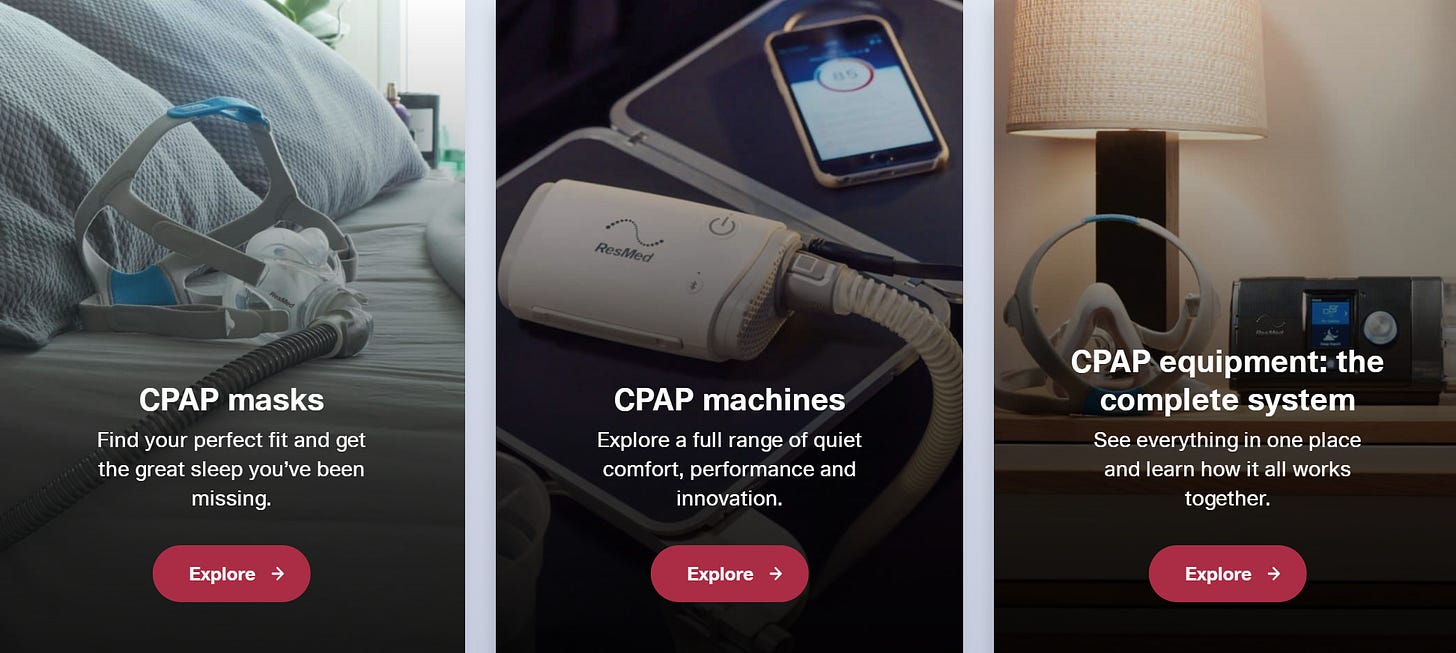
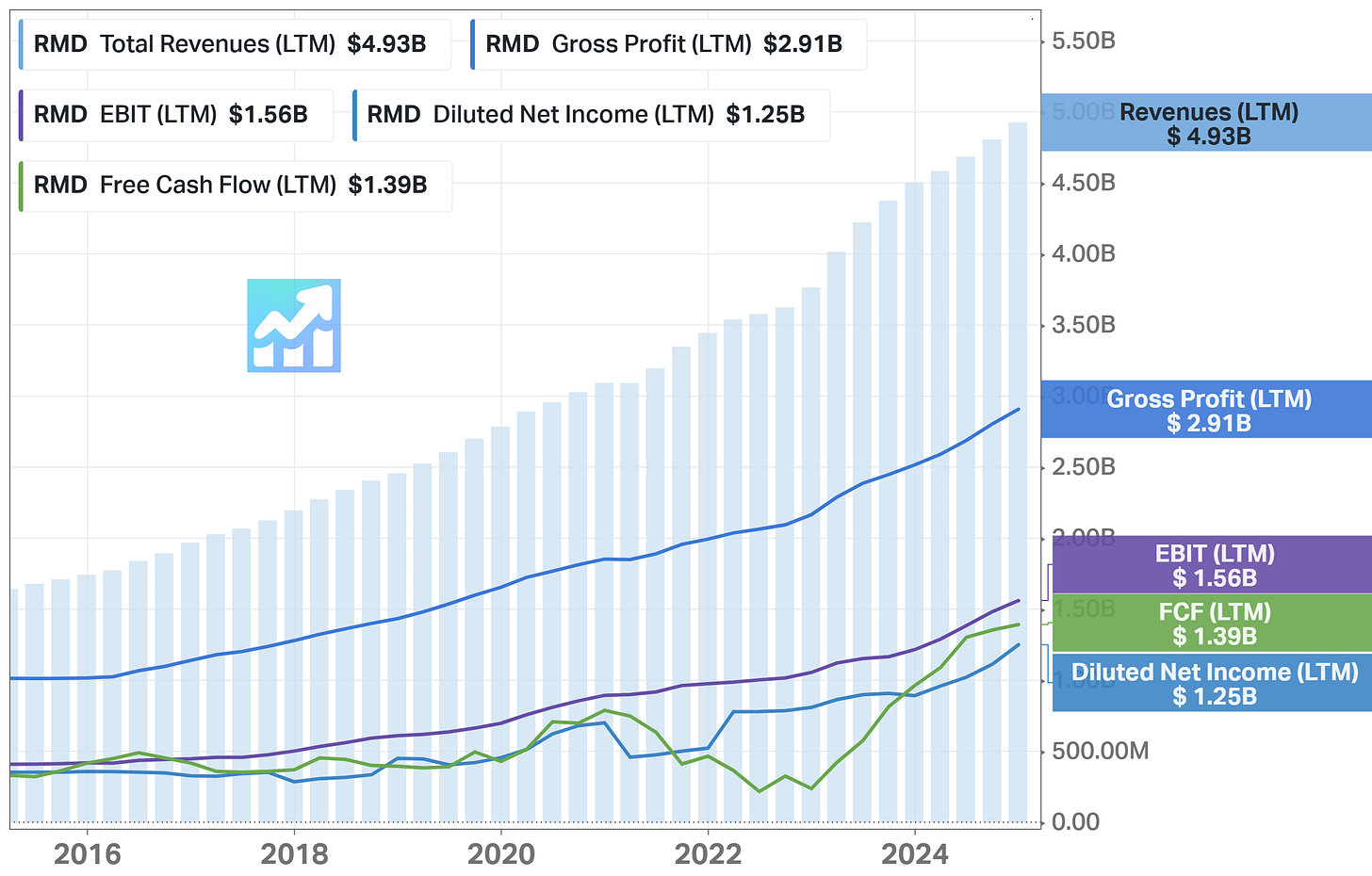

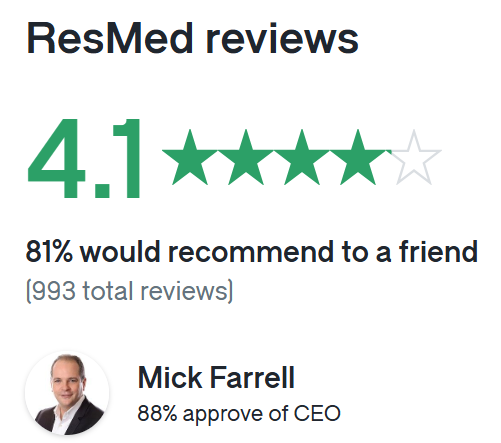
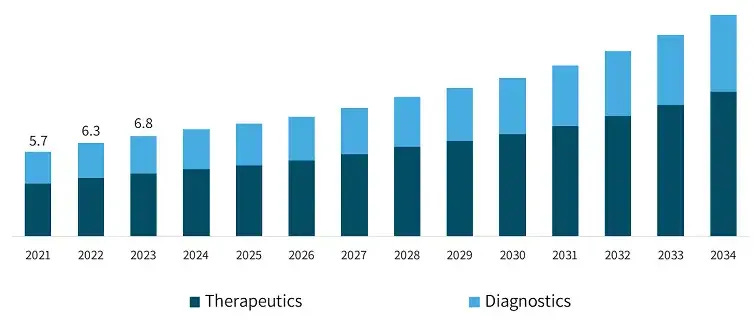
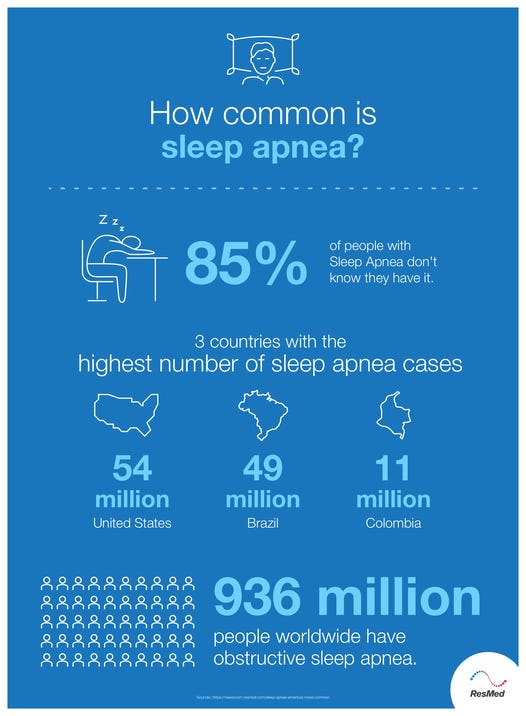
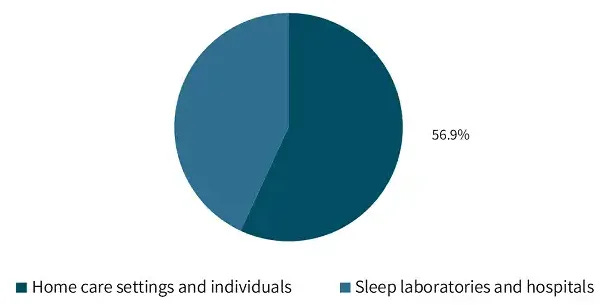






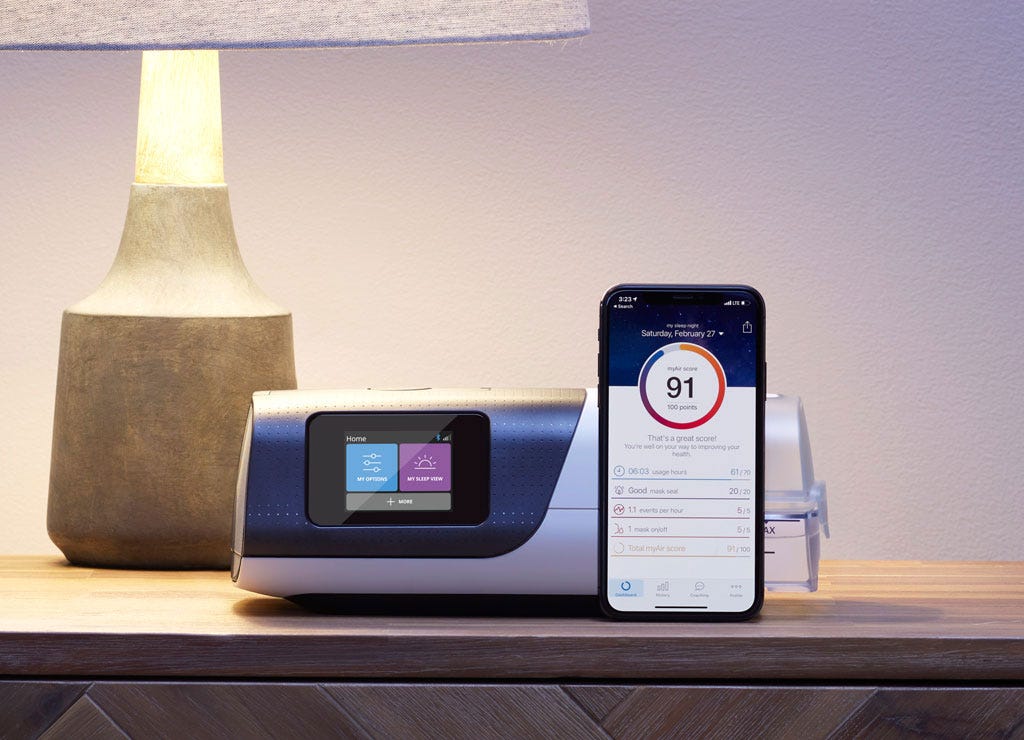




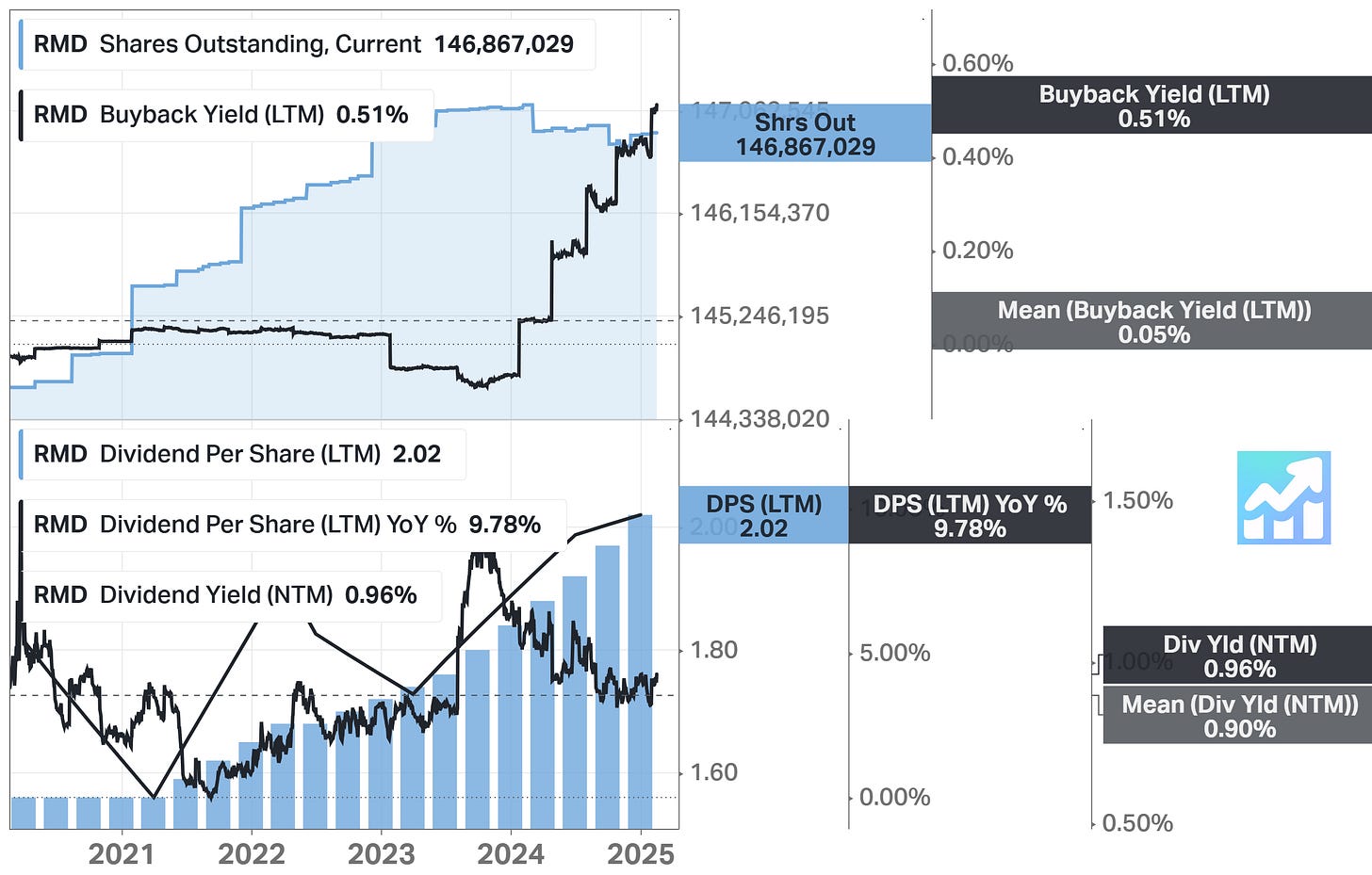


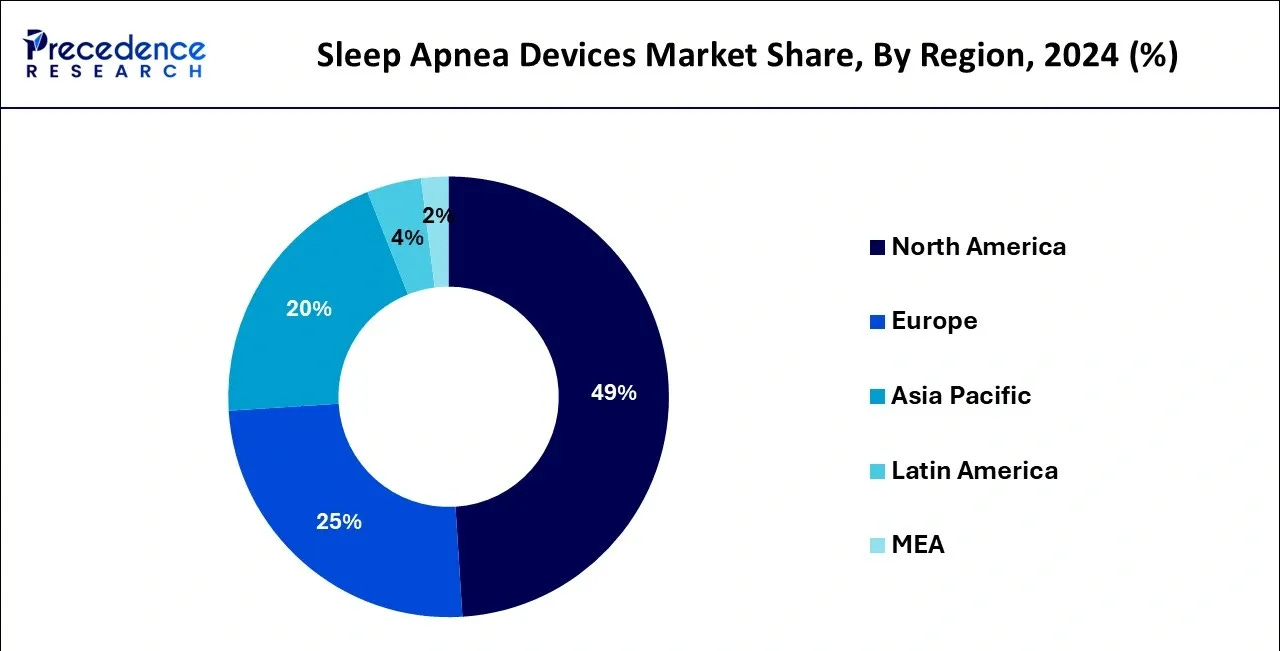


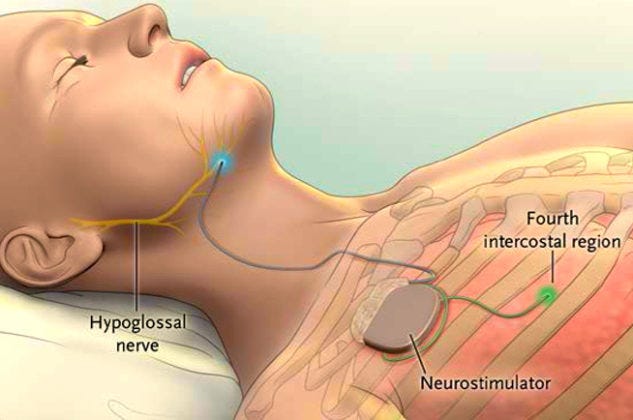

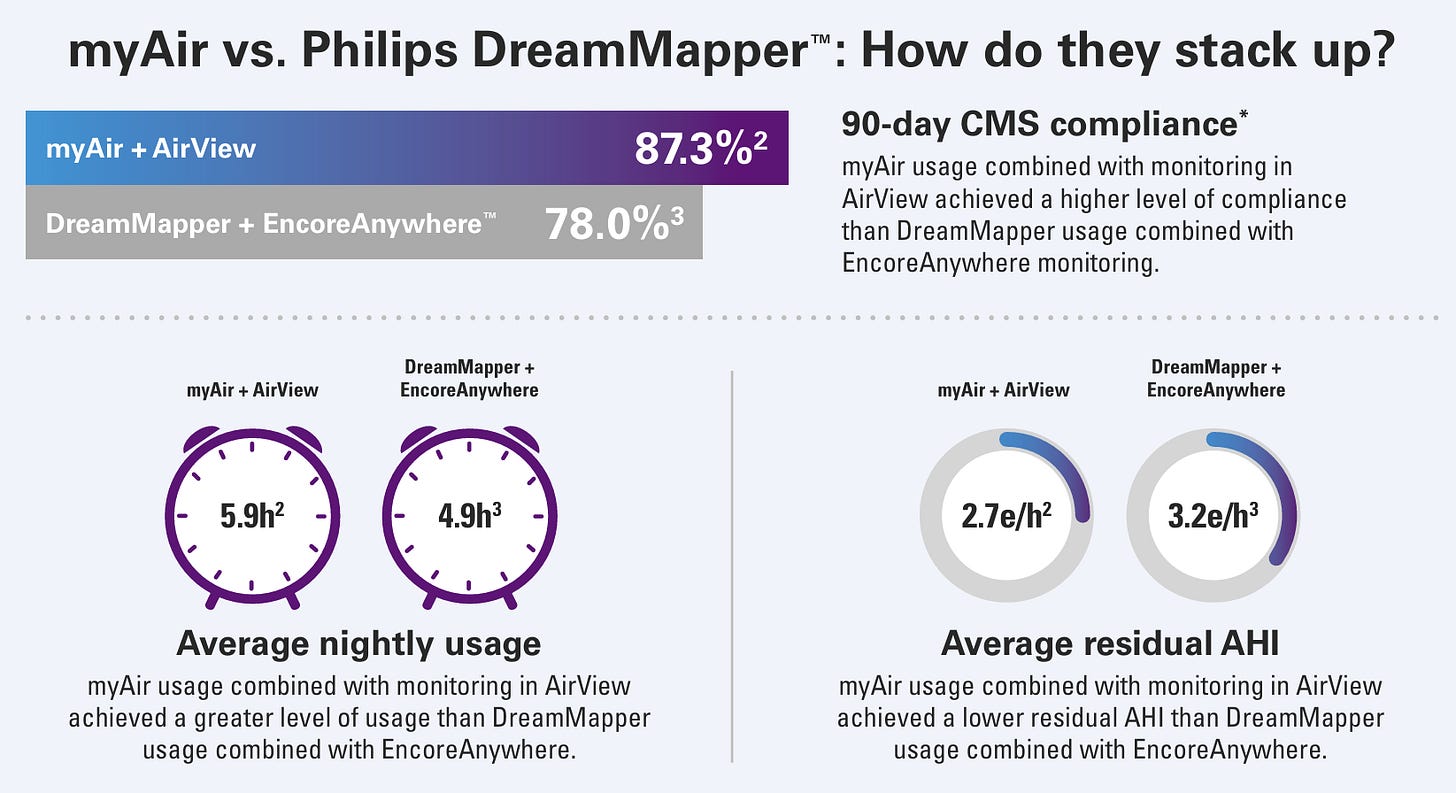

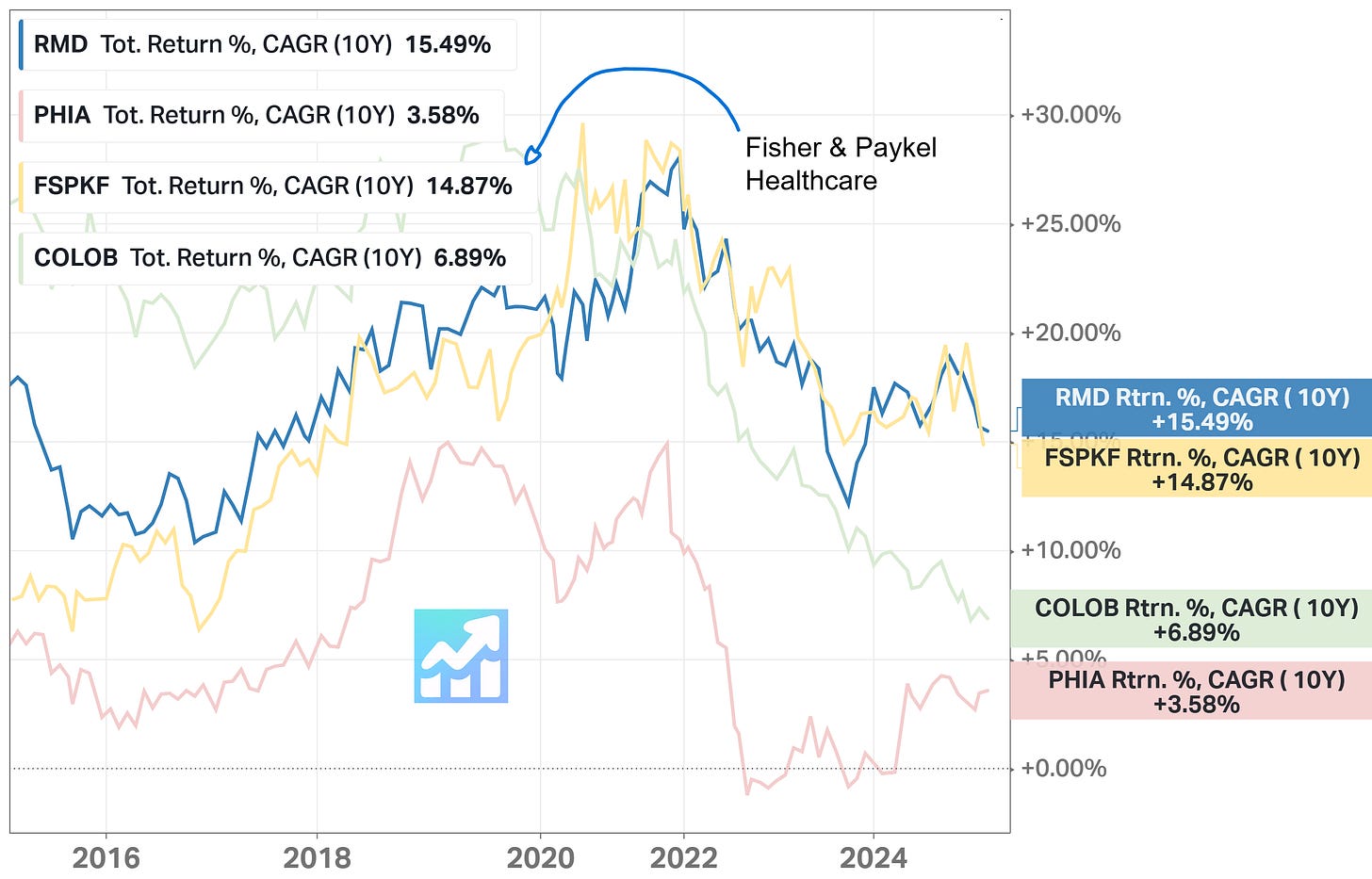
Thanks, Dan! Very interesting overview! Thx.
If you like RezMed, take a look at VieMed $VMD